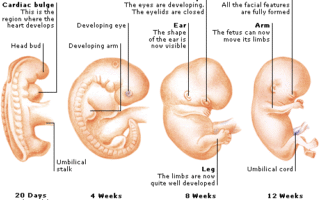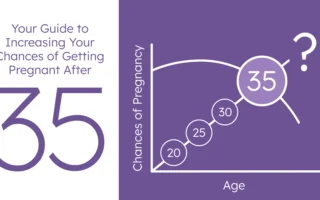Pregnancy is a life-changing experience that often starts with subtle and sometimes confusing symptoms. Understanding these early signs, distinguishing them from complications such as ectopic pregnancy, and knowing how to confirm a pregnancy with a test or calculator can provide clarity and peace of mind. This guide explains common pregnancy symptoms, what to be aware of in the early stages, and how to calculate your due date.
Early Pregnancy Symptoms
Pregnancy symptoms can appear as early as one to two weeks after conception. Some of the most common symptoms include:
1. Missed Period
The most widely recognized sign of pregnancy. If you’re regular and miss a period, it’s time to take a pregnancy test.
2. Fatigue
Rising progesterone levels can make you feel unusually tired, even in early pregnancy [1].
3. Nausea and Vomiting (Morning Sickness)
Usually begins around week 6, but some women experience it earlier. It may occur at any time of the day.
4. Breast Tenderness
Hormonal changes cause your breasts to become swollen, sore, or tingly.
5. Frequent Urination
Increased blood flow to the kidneys during pregnancy causes more frequent trips to the bathroom [2].
6. Mood Swings
Hormones like estrogen and progesterone can lead to emotional ups and downs.
7. Food Aversions or Cravings
Sudden changes in taste and smell sensitivity can lead to strong aversions or cravings.
8. Light Spotting or Cramping
Some women experience light spotting, known as implantation bleeding, around the time the embryo implants in the uterus.
Ectopic Pregnancy: A Serious Concern
An ectopic pregnancy occurs when a fertilized egg implants outside the uterus, most commonly in a fallopian tube. It’s a medical emergency and cannot result in a viable pregnancy.
Symptoms of Ectopic Pregnancy:
- Sharp or stabbing pain in the abdomen or pelvis
- Vaginal bleeding
- Dizziness or fainting
- Shoulder pain (from internal bleeding irritating the diaphragm)
If you experience these symptoms, seek emergency medical care immediately [3].
Pregnancy Testing: How and When
1. Home Pregnancy Test
Most over-the-counter urine tests detect hCG (human chorionic gonadotropin) and can be accurate as early as the first day of a missed period.
- Best time to test: Morning, when hCG is most concentrated in urine.
- Accuracy: Over 99% when used correctly [4].
2. Blood Test
Administered by a healthcare provider. It can detect pregnancy earlier than a urine test and can measure the exact amount of hCG.
Pregnancy Calculator: Estimating Your Due Date
A pregnancy calculator or due date calculator estimates when your baby is likely to be born. It’s typically based on the first day of your last menstrual period (LMP).
Pregnancy Due Date Calculator
How to Use It:
- Standard Method (Naegle’s Rule):
- Add 280 days (or 40 weeks) to the first day of your last period.
- Example: If your LMP was January 1, your estimated due date is October 8.
Alternatively, many websites and apps offer digital pregnancy calculators for convenience.
When to See a Doctor
Schedule a prenatal visit if:
- You get a positive pregnancy test
- You experience severe pain or heavy bleeding
- You have a history of miscarriage or ectopic pregnancy
Early prenatal care helps ensure a healthy pregnancy for both you and your baby.
Conclusion
Recognizing early pregnancy symptoms and understanding how to confirm them with testing or a due date calculator empowers you to take charge of your reproductive health. Be mindful of signs of ectopic pregnancy and seek care promptly. Whether it’s your first pregnancy or not, being informed is the first step to a safe and healthy journey.
References
- American College of Obstetricians and Gynecologists. “Early Pregnancy Symptoms.” ACOG, 2022. https://www.acog.org
- Mayo Clinic. “Pregnancy Symptoms: What Happens First.” Mayo Clinic, 2023. https://www.mayoclinic.org
- National Health Service (UK). “Ectopic Pregnancy.” NHS, 2023. https://www.nhs.uk
- U.S. Food and Drug Administration. “Home Pregnancy Tests.” FDA, 2022. https://www.fda.gov




